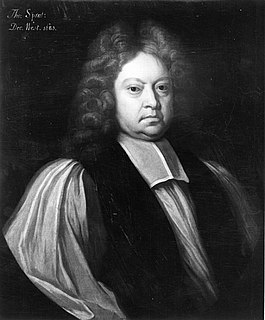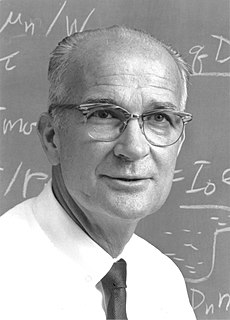A Quote by Thomas Jefferson
He [Washington] has often declared to me that he considered our new constitution as an experiment on the practicability of republican government, and with what dose of liberty man could be trusted for his own good; that he was determined the experiment should have a fair trial, and would lose the last drop of his blood in support of it. And these declarations he repeated to me the oftener and the more pointedly.
Related Quotes
As the patriots of seventy-six did to the support of the Declaration of Independence, so to the support of the Constitution and Laws, let every American pledge his life, his property, and his sacred honor;-let every man remember that to violate the law, is to trample on the blood of his father, and to tear the character of his own, and his children's liberty.
They have never affirm'd any thing, concerning the cause, till the trial was past: whereas, to do it before, is a most venomous thing in the making of Sciences: for whoever has fix'd on his Cause, before he has experimented; can hardly avoid fitting his Experiment, and his Observations, to his Own Cause, which he had before imagin'd; rather than the Cause to the Truth of the Experiment itself. Referring to experiments of the Aristotelian mode, whereby a preconceived truth would be illustrated merely to convince people of the validity of the original thought.
The United States has adventured upon a great and noble experiment . . . of total separation of Church and State. . . . The offices of the Government are open alike to all. No tithes are levied to support an established Hierarchy, nor is the fallible judgment of man set up as the sure and infallible creed of faith. . . . Such is the great experiment which we have tried, and . . . our system of free government would be imperfect without it.
Our Founding Fathers well understood that concentrated power is the enemy of liberty and the rights of man. They knew that the American experiment in individual liberty, free enterprise and republican self-government could succeed only if power were widely distributed. And since in any society social and political power flow from economic power, they saw that wealth and property would have to be widely distributed among the people of the country. The truth of this insight is immediately apparent.
The equal protection standard of the constitution has one clear and central meaning - it absolutely prohibits invidious [repugnant] discrimination by government...Under our Constitution, any official action that treats a person differently on account of his race or ethnic origin is inherently [by nature] suspect and presumptively [probably] invalid...Under the Constitution we have, one practice in which government may never engage in the practice of racism - not even "temporarily" and not even as an "experiment."
We have solved, by fair experiment, the great and interesting question whether freedom of religion is compatible with order in government and obedience to the laws. And we have experienced the quiet as well as the comfort which results from leaving every one to profess freely and openly those principles of religion which are the inductions of his own reason and the serious convictions of his own inquiries.
It is often said that experiments should be made without preconceived ideas. That is impossible. Not only would it make every experiment fruitless, but even if we wished to do so, it could not be done. Every man has his own conception of the world, and this he cannot so easily lay aside. We must, example, use language, and our language is necessarily steeped in preconceived ideas. Only they are unconscious preconceived ideas, which are a thousand times the most dangerous of all.
We should be unfaithful to ourselves if we should ever lose sight of the danger to our Liberties if anything partial or extraneous should infect the purity of our free, fair, virtuous, and independent elections. If an election is to be determined by a majority of a single vote, and that can be procured by a party through artifice or corruption, the Government may be the choice of a party for its own ends, not of the nation for the national good.
Let the advocate of animal food, force himself to a decisive experiment on its fitness, and as Plutarch recommends, tear a living lamb with his teeth, and plunging his head into its vitals, slake his thirst with the steaming blood; when fresh from the deed of horror let him revert to the irresistible instincts of nature that would rise in judgment against it, and say, Nature formed me for such work as this. Then, and then only, would he be consistent.
Any man having one drop of the seed of Cane in him Cannot hold the priesthood ... I will say it now in the name of Jesus Christ. I know it is true & they know it. The Negro cannot hold one particle of Government ... if any man mingles his seed with the seed of Cane the only way he Could get rid of it or have salvation would be to Come forward & have his head Cut off & spill his Blood upon the ground. It would also take the life of his Children.
Whatever the cause, I could not meet his sunshine with cloud. If this were my last moment with him, I would not waste it in forced, unnatural distance. I loved him well - too well not to smite out of my path even Jealousy herself, when she would have obstructed a kind farewell. A cordial word from his lips, or a gentle look from his eyes, would do me good, for all the span of life that remained to me; it would be comfort in the last strait of loneliness; I would take it - I would taste the elixir, and pride should not spill the cup.





























